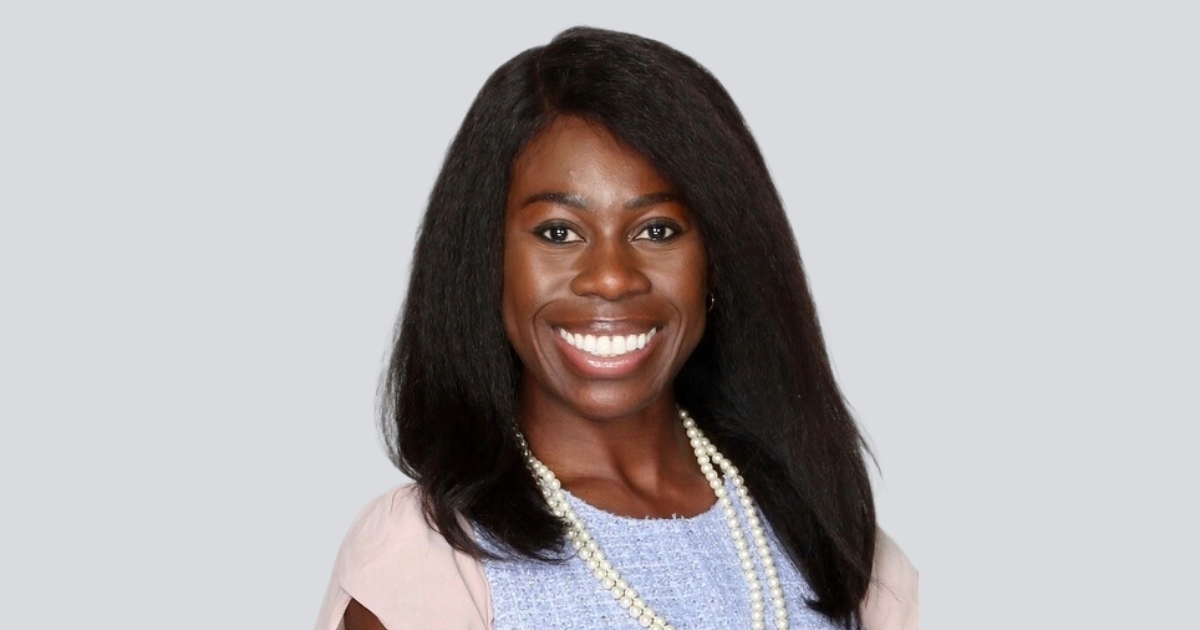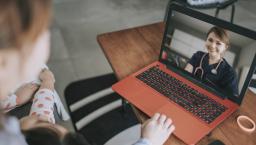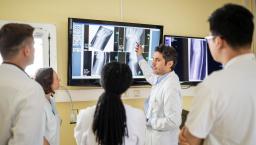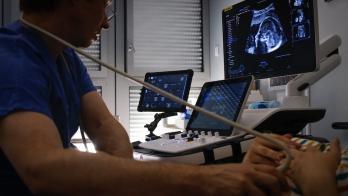
Photo courtesy of CancerIQ
Between 30% to 50% of cancer cases are preventable, according to the World Health Organization. Precluding the advancement of cancer can save patients and payers money and lead to a better quality of life.
Feyi Ayodele, founder and CEO at CancerIQ, sat down with MobiHealthNews to discuss CancerIQ's offerings and how healthcare organizations use its technology to detect and thwart the acceleration of cancer in patients susceptible to the disease.
MobiHealthNews: Can you tell our audience about CancerIQ?
Feyi Ayodele: CancerIQ is a company on a mission to really expand access to the latest innovations in cancer prevention, early detection and treatment.
MHN: And how does it do that?
Ayodele: We do that by making sure we're really fully integrating genomic medicine into routine care. The more we learn about the relationship between cancer and our genes and other factors as the science evolves, we should be able to act on that knowledge. Essentially, what we do is we make it so that your everyday provider can use that information and design a personalized care plan.
MHN: What role does digital health play in your offering?
Ayodele: So, how we've done it actually goes back to kind of a founding story. So, I started this company after working with my mother, who is a world-renowned breast medical oncologist and cancer geneticist at the University of Chicago, which is really one of the founding members of this preventive oncology program.
And what I recognized as she was trying to scale this program beyond the University of Chicago into their affiliates is that a lot of the affiliates said they didn't have the time, they didn't have the knowledge, and, you know, they ultimately didn't have the resources to do things the way my mother was doing things at the University of Chicago.
So, I kind of work with the experts in the field ... to automate and digitize a lot of the process of preventive oncology, starting up front with automating the family history data collection, a lot of stuff you collect from patients so that we're saving providers time in gathering information to resolve the knowledge issue.
We are really a content engine that has all of the latest, most cutting-edge clinical guidelines and serves those up for providers and patients. And also automating the ongoing management process. My mother had a full team of navigators that kind of called patients that were at elevated risk, ordered their MRIs, followed up with them because they have to do something that's a lot more time intensive than other populations, and we've automated that process as well.
So, essentially, we've taken a clinical service and we digitized it, which is, I think, the definition of digital health.
MHN: How are healthcare systems using CancerIQ's offerings?
Ayodele: One of the first things that they're using CancerIQ to do is to really expand the genetic service or launch a genetic service.
So, they are putting our software in the hands of the providers who may be trained to do this already, and through that process automation they were able to double their service capacity or expand it to more patients. So that's one way that health systems are using it.
The other way that health systems are using it is they're actually fully relying on CancerIQ to launch that new service within their organization. So, we're expanding the genetics workforce by actually giving our software to providers who aren't trained in genetics, and through automation, and again, that the content that we've got through it, we can turn your everyday provider into that MacArthur Genius award-winning medical oncologist like my mom.
MHN: How does CancerIQ improve access to genetic testing?
Ayodele: The way CancerIQ is expanding access is we are essentially providing a more high-resolution view of a patient population. So, providers know those ones that need genetic testing need something above and beyond the standard of care because if they correctly identify those patients, they're really low-cost ways for patients to access those services.
MHN: What's in store for 2024?
Ayodele: So, in 2024, we're capitalizing on a couple of really strong headwinds for CancerIQ.
There's been some recent news about how ASCO [American Society of Clinical Oncology] has changed its guidelines and made it so that everybody with breast cancer should get genetic testing. What does that mean? That means that more patients are going to get access, and we're going to find more mutation carriers this year than we ever have.
The second thing that's really exciting for CancerIQ is that there's increasing awareness of these later-stage younger patients who are getting cancer.
So, for 2024, a lot of what CancerIQ is focused on is not just getting people access to testing or identifying them at risk, but actually really deeply investing in the way that we manage those patients at elevated risk, because we're going to have a population of mutation carriers and high-risk patients that is probably the largest population this health system has ever had to manage.
And I think through investments in our software, we're going to be able to amplify the efforts of every clinician and make sure those patients stay on track and stay ahead of cancer.
Essentially, what we're doing is giving everyone a hyper-personalized cancer prevention plan. I'd say that's kind of the layperson's view of this. Genetic testing is just one of the things that gets done in the CancerIQ workflow, but we're not a genetic testing lab. In fact, we probably process more tests than some of the genetic testing labs that are out there without actually owning a lab at all.
We’re truly in the business of interpreting this information, making sure it's getting to patients and is truly in their hands, so that all patient populations can really act on the information, versus just getting tested on its own.




















